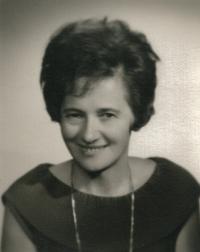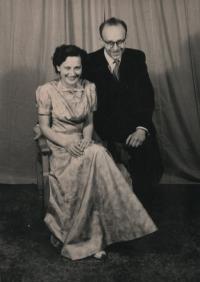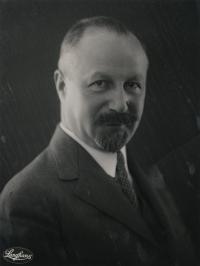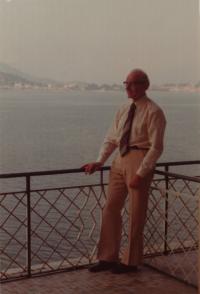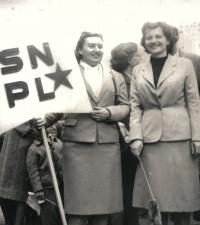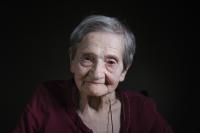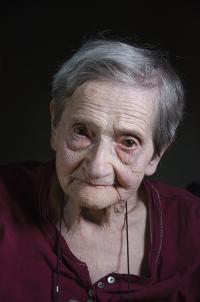I cannot just die now, at the moment of liberation
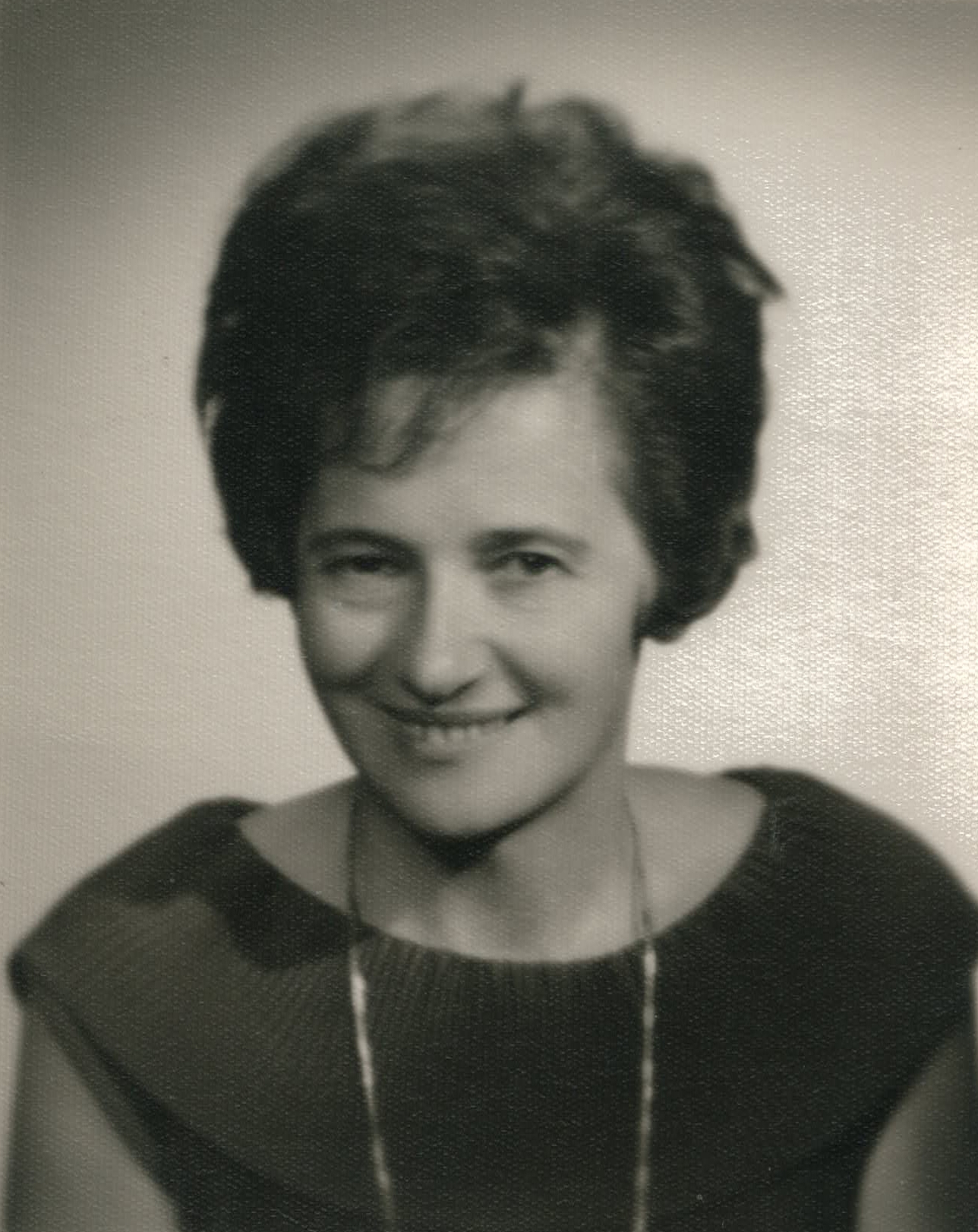
Download image
Erna Meissnerová was born on 9th December 1921 in Prague as an only child to a Jewish family. Her parents Olga and Emil Fischman owned a general store, her grandfather was a rabbi. She graduated from a business college and at the time of the German occupation of Czechoslovakia she worked as a clerk for the Jewish community in Kolín. In 1942 she and her parents were assigned to a transport to the Terezín concentration camp. She had spent three months there before she and her mother were transferred to a labour camp in Tallin, Estonia. There, Erna was separated from her mother. Along with other young girls she was assigned to forest labour. She also worked sorting out clothes, shoes and other personal items originally belonging to people who had been transported to the camp. She had to choose valuable things for the camp commander. Upon the Soviet army’s advance towards Estonia, Erna was transferred to Germany’s territory - to Danzig and Hamburg among other places. She worked in construction and in an ammunition factory. She witnessed the death of a number of girls from her transport. Eventually she was moved to the Bergen-Belsen concentration camp, undergoing typhus at the time of the liberation by the British army. When she returned home to Kolín she attempted to find out about her parents’ fate. She discovered that both had died. Of her family, only an aunt and two relatives who lived abroad survived the war. Erna took up a job as a recorder, got married and gave birth to a son. After four years of marriage, her husband died of tuberculosis. She got married for the second time. In 1968, following the Soviet occupation of Czechoslovakia, immigrated with her second husband and her son to Great Britain where she has lived for forty years. Erna Meissnerová died on 28 January 2021.
